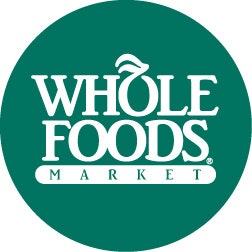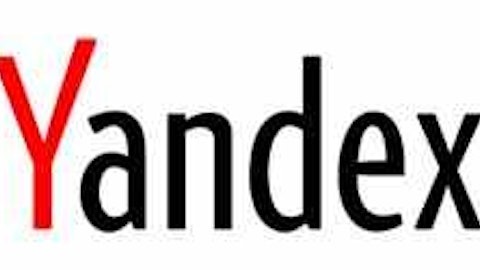Can investors put cash into virtue and still generate great returns? As it turns out, it’s getting easier to do exactly this all the time. More companies are doing good things in the world, and more investors are waking up to the positive opportunities for their portfolios and beyond.
Sorry, tobacco, alcohol, banks, energy, genetic modifiers, and other entrenched socially and environmentally damaging companies. Increasing numbers of corporations have either started out as good guys or are transforming themselves into better corporate citizens. Meanwhile, responsible investments are becoming more popular because they’re actually good investments.

GMI Ratings recently covered what it dubbed an overdue alignment of ESG (environmental, social, and governance concerns) with CSR (corporate social responsibility). Although there has been plenty of research recently showing that responsible investments do well over the long haul, there’s more evidence that investors should demand integration of such concerns into corporate strategies. This would be for the good of the world and investors’ own safe and profitable investments.
The author of the post, James Kaplan, pointed to a United Nations “Integrated Analysis” report from the Principles for Responsible Investment. It illustrated the numbers of major investors who are actually already using ESG factors to crunch data for their growth estimates and discount rates.
In the foreword to the report, Neil Brown, Chairman of the PRI’s ESG Integration Working Group, said, “I believe the analysis presented here attempts to deliver all three [ESG] and sits at the cutting edge of investment practice in 2013.”
Case studies in the report collected data from major investors like UBS AG (USA) (NYSE:UBS), Citigroup Inc. (NYSE:C), and Societe Generale. Analysts at these and other Wall Street firms are increasingly using ESG elements to drive their valuation and growth projections. By doing so, they’re taking into account the impact these elements have not only on earnings and cash flow but also broader on macroeconomic issues like resource scarcity.
In addition, Deloitte Review‘s “Finding the Value in ESG Performance” found that environmental news has increasingly had a direct impact on stock prices. Positive news on average increased stock returns by 0.84%. Screening out poor corporate citizens, long thought by some investors to be a common-sense move, is increasingly acknowledged as a risk-reduction strategy.
There’s more. Last year, a study from Harvard Business Review tracked 18 companies over 18 years. High-sustainability companies beat low-sustainability companies by a long shot over the long haul in terms of share price, as reported by Bloomberg here.
Acknowledging important intangible assets
As much as I have criticized companies that I argued were repositories of vice, there are plenty more positive companies investors can put on their watchlists. Here are a few.
Google Inc (NASDAQ:GOOG)
Google’s founders have built a foundation of responsible factors, such as vows to reduce carbon impact and continued investments in clean energy, excellent treatment of its employees, the democratization of information, and efforts to tackle some of the world’s biggest social problems. Its stock’s recent flirtation with the magical $800 mark shows that investors aren’t exactly suffering from the company’s philanthropic edge.
Whole Foods Market, Inc. (NASDAQ:WFM)
Organic supermarket Whole Foods Market has also been built with stakeholder-friendly initiatives and health-focused innovations. This is a company that’s dead set on doing more good in the world than harm. Overdone pessimism regarding its most recent quarter has presented a buying opportunity, given continued strong sales figures and its caring, innovative base business.
PepsiCo, Inc. (NYSE:PEP)
Pepsi’s been around for more than a century, but it’s trying to change with the times. CEO Indra Nooyi has been injecting responsibility and sustainability into the company’s basic mission, and trying to increase the numbers of healthy products it offers. Pepsi’s mission is called “Performance with Purpose,” and according to the company’s 10-K: “We plan to continue delivering on this vision by offering a wide range of product choices, finding innovative ways to cut costs and minimize our impact on the environment, providing a safe and inclusive workplace and respecting and investing in the communities in which we operate.” This hasn’t hurt Pepsi, judging by its recent results and the dawning possibility that Pepsi’s actually kicking The Coca-Cola Company (NYSE:KO) right in the can.
Coke isn’t taking this all lightly. Just last week, it announced that it’s adding a healthy option to its beverage portfolio by taking a majority stake in Innocent Drinks. This beverage line joins non-soda Coke options like Odwalla and Honest Tea. The company itself boasts eco-friendliness and frequent donations of profits to charity.
Pepsi’s current forward price-to-earnings ratio of 16 is in line with Coke’s right now. However, Pepsi is a stronger stock idea because it’s far less reliant on beverages, since its portfolio is mostly foods rather than drinks.
Unilever plc (ADR) (NYSE:UL)
Unilever is a massive conglomerate, but it has also been a company with an outspoken view of how environmental responsibility reduces waste and increases profits — a win-win. Its most notable achievements have been its specific performance goals and more than 50 targets related to its Sustainable Living Plan. Also notable: Unilever has been altering its business model with a focus on sustainability, not simply envisioning this as a nice add-on that’s not core to the business. Last April, the European head of Unilever posited that improved environmental practices could help double the company’s sales. Unilever’s growth last quarter despite the difficult economy doesn’t make the company look like a bad investment, either. Unilever’s shares trade at 17 times forward earnings, about on par with rival The Procter & Gamble Company (NYSE:PG); Unilever’s price may not be a bad deal for a company that’s planning an evolutionary growth strategy.
Positive impacts, in portfolios and beyond
Granted, those companies aren’t perfect. Moreover, weighing investments in socially responsible companies is more art than science, as high valuations and weak growth prospects can trump positive ESG elements.
Still, there’s plenty of indication that virtue can beat vice, and that more and more investors are recognizing how important these factors are in relation to risk versus reward. Positive ESG attributes bode well for our future, too. Companies that do the right things without losing traction in the marketplace — and often even gain traction for their positive efforts — equal a win-win for investors and the world alike.
The article Investing in Virtue to Beat the Market originally appeared on Fool.com and is written by Alyce Lomax.
Alyce Lomax owns shares of Whole Foods Market. The Motley Fool recommends Coca-Cola, Google, PepsiCo, Procter & Gamble, Unilever, and Whole Foods Market. The Motley Fool owns shares of Citigroup Inc , Google, PepsiCo, and Whole Foods Market.
Copyright © 1995 – 2013 The Motley Fool, LLC. All rights reserved. The Motley Fool has a disclosure policy.





